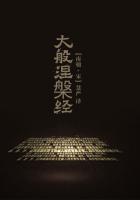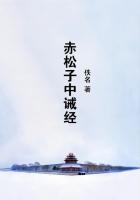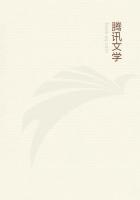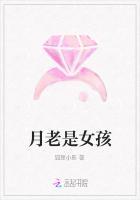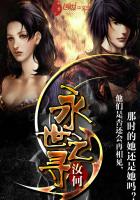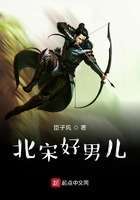But, in accordance with the taste of his age, which shunned such sheer straightforwardness in poetry, the "Book of the Duchess" contains no further transparent reference to the actual circumstances of the wedded life which had come to so premature an end--for John of Gaunt had married Blanche of Lancaster in 1359;--and an elaborate framework is constructed round the essential theme of the poem. Already, however, the instinct of Chaucer's own poetic genius had taught him the value of personal directness; and, artificially as the course of the poem is arranged, it begins in the most artless and effective fashion with an account given by the poet of his own sleeplessness and its cause already referred to--an opening so felicitous that it was afterwards imitated by Froissart. And so, Chaucer continues, as he could not sleep, to drive the night away he sat upright in his bed reading a "romance," which he thought better entertainment than chess or draughts. The book which he read was the "Metamorphoses" of Ovid; and in it he chanced on the tale of Ceyx and Alcyone--the lovers whom, on their premature death, the compassion of Juno changed into the seabirds that bring good luck to mariners. Of this story (whether Chaucer derived it direct from Ovid, or from Machault's French version is disputed), the earlier part serves as the introduction to the poem. The story breaks off--with the dramatic abruptness in which Chaucer is a master, and which so often distinguishes his versions from their originals--at the death of Alcyone, caused by her grief at the tidings brought by Morpheus of her husband's death. Thus subtly the god of sleep and the death of a loving wife mingle their images in the poet's mind; and with these upon him he falls asleep "right upon his book."What more natural, after this, than the dream which came to him? It was May, and he lay in his bed at morning-time, having been awakened out of his slumbers by the "small fowls," who were carolling forth their notes--"some high, some low, and all of one accord." The birds singing their matins around the poet, and the sun shining brightly through his windows stained with many a figure of poetic legend, and upon the walls painted in fine colours "both text and gloss, and all the Romaunt of the Rose"--is not this a picture of Chaucer by his own hand, on which, one may love to dwell? And just as the poem has begun with a touch of nature, and at the beginning of its main action has returned to nature, so through the whole of its course it maintains the same tone. The sleeper awakened--still of course in his dream--hears the sound of the horn, and the noise of huntsmen preparing for the chase. He rises, saddles his horse, and follows to the forest, where the Emperor Octavian (a favourite character of Carolingian legend, and pleasantly revived under this aspect by the modern romanticist, Ludwig Tieck--in Chaucer's poem probably a flattering allegory for the King) is holding his hunt. The deer having been started, the poet is watching the course of the hunt, when he is approached by a dog, which leads him to a solitary spot in a thicket among mighty trees;and here of a sudden he comes upon a man in black, sitting silently by the side of a huge oak. How ****** and how charming is the device of the faithful dog acting as a guide into the mournful solitude of the faithful man! For the knight whom the poet finds thus silent and alone, is rehearsing to himself a lay, "a manner song," in these words:--I have of sorrow so great wone, That joye get I never none, Now that I see my lady bright, Which I have loved with all my might, Is from me dead, and is agone.
Alas! Death, what aileth thee That thou should'st not have taken me, When that thou took'st my lady sweet?
That was so fair, so fresh, so free, So goode, that men may well see Of all goodness she had no meet.
Seeing the knight overcome by his grief, and on the point of fainting, the poet accosts him, and courteously demands his pardon for the intrusion.
Thereupon the disconsolate mourner, touched by this token of sympathy, breaks out into the tale of his sorrow which forms the real subject of the poem. It is a lament for the loss of a wife who was hard to gain (the historical basis of this is unknown, but great heiresses are usually hard to gain for cadets even of royal houses), and whom, alas! her husband was to lose so soon after he had gained her. Nothing could be ******r, and nothing could be more delightful than the Black Knight's description of his lost lady as she was at the time when he wooed and almost despaired of winning her. Many of the touches in this description--and among them some of the very happiest--are, it is true, borrowed from the courtly Machault;but nowhere has Chaucer been happier, both in his appropriations and in the way in which he has really converted them into beauties of his own, than in this, perhaps the most lifelike picture of maidenhood in the whole range of our literature. Or is not the following the portrait of an English girl, all life and all innocence--a type not belonging, like its opposite, to any "period" in particular--?
I saw her dance so comelily, Carol and sing so sweetely, And laugh, and play so womanly, And looke so debonairly, So goodly speak and so friendly, That, certes, I trow that nevermore Was seen so blissful a treasure.
For every hair upon her head, Sooth to say, it was not red, Nor yellow neither, nor brown it was, Methought most like gold it was.
And ah! what eyes my lady had, Debonair, goode, glad and sad, Simple, of good size, not too wide.
Thereto her look was not aside.
Nor overthwart;
but so well set that, whoever beheld her was drawn and taken up by it, every part of him. Her eyes seemed every now and then as if she were inclined to be merciful, such was the delusion of fools: a delusion in very truth, for It was no counterfeited thing;It was her owne pure looking;

